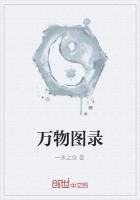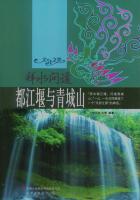Zhu Rongji took charge of the People’s Bank on July1,1993 and stayed in that post for only twoyears,but hecreated the basic framework of China’s monetary systemand monitored its performance until retiring fromthepremiership in March 2003.In 1995,he converted thePeople’s Bank into a central bank of the classic type.What he did to curb inflation was direct restrictions onborrowing and spending,with the RMB anchored to the US dollar.I was doubtful of the merits of such restric-tions,but then this may have been the only way to cut off the power demand for money.Influenced by Friedman,Iobjected to the pegged rate.When Hong Kong’s Financial Secretary decided toadopt the currency board systemand peg the Hong Kongdollar to the US dollar in 1983,I was involved in the dis-cussions.Charles Good hart argued that the Hong Kongdollar must be anchored,and Friedman supported thecurrency board.What about the RMB?In the late 1980sit was showing signs of difficulties,and by early 1990sits exchange value began to collapse.I consulted Miltonon a number of occasions,and he was extremely gener-ous with his time whenever issues involving Chinacropped up.
【42】张五常,《权力引起的通货膨胀》,一九九三年五月二十一日,《壹周刊》,转刊于张五常,《二十一世纪看中国的经济革命》,花千树出版,一七五至一七九页。
Milton’s view was that a country the size of China could not use the currency board.He said that my sug-gestion of anchoring the RMB to a basket of commodi-ties would work in principle,but the cost would be high.His choice was that China go to fiat money,control the money supply tightly,and let the exchange rate float.
In July 1997,soon after the Asian financial crisisstruck,a group of economists fromBeijing asked to meet me in Shenzhen.They were deeply concerned about what would happen.During the discussion I suddenlyturned bullish,because I began to realize that Zhu wasright.In three short years he brought inflation fromover20% to zero,and given sharply rising product quality atthat time deflation must be implied.I inferred then thatthe Asian financial crisis was a consequence ofthe sud-den and sharp strengthening of the RMB.In one way oranother most countries in Asia,including China,tiedtheir currencies to the US dollar at that time,so wheninflation came to a halt in China,under internationalcompetition the small boats tied to the dollar broke loosebecause their currencies became overvalued.43
About a year later,I began to appreciate the Zhu sys-temeven more.His method may be interpreted asanchoring the RMB to a tradable index,using the dollaras a proxy,and the issuance of the RMB was guided by the inflows of foreign direct investment.He guardedthat index with care.Inspired by Zhu,I came to the viewthat a currency may anchor itself to a tradable index of abasket of commodities,without having the real com-modities in store,provided that the monetary authoritypossesses foreign reserves for occasional interventionand more importantly that monetary policy is not used tocorrect problems in the real economy.If money is keptto monetary phenomena,then anchoring the exchangevalue to a tradable index would not be difficult to attainand sustain.
【43】I did not publish this explanation at the time in fear it mighttrigger further disturbance in the currency market.When I final-ly did so on April 27,2006 in a Chinese article entitled “The Story of the Iron Prime Minister,” a Beijing friend who wasexpert on the crisis was stunned and told me that my explanationmust be right.He and his colleagues were fanatically seeking anexplanation for the crisis at that time,but in retrospect what ever they came up has proved false.见张五常,《铁总理的故事》,二○○六年四月二十七日发表于《壹周刊》。
It was the flexibility of market contracts that helped to save China fromrecession in the latter part of the 1990s.Deflation exceeded 3% even ignoring sharp improve-ments in product quality,and property prices droppedtwo-thirds or more.However,unemployment stayedaround 4% ,and the growth rate around 8%.Bonus con-tracts and piece-rate contracts,overwhelmingly used inindustries,provided automatic downward adjustments inreal wages.44 Furthermore,to protect his eight-percentgoal,Zhu freed the market completely,pushed hard forthe privatization of state enterprises,lifted restrictions toallow workers to freely ‘float’ around the country,andspeeded up the dissemination of economic decisions.Zhu might have started out as a market skeptic,but hemust have turned believer before stepping down.
To return to money matters in China.In a lecturedelivered at Tianjin’s Nankai University in 2002,Iargued that the RMB was the strongest currency in theworld——at that time the black market rate was stillbelowthe official rate.45 Then in March 2003,in an arti-cle commenting on Zhu’s retirement,I said the RMBwas so strong that within two years western countrieswill pressure China to appreciate——the black market rate was about on par with the official rate then.
【44】Bonus contracts provide automatic downward adjustmentin wages.Piece rates are equally flexible because they are of tenrenegotiated when new orders from buyers arrive.见张五常,《制度的选择》,第四章,第六节,二○○二年花千树出版。
【45】张五常,《以中国青年为本位的金融制度》,二○○二年六月二十日发表于《壹周刊》。
46These assessments of currency strength in terms of interactionsbetween official and black rates were based on discus-sions with Milton in 1993 and my understanding of underground currency dealings over the years.Beijing,of course,was fully aware of these activities.















